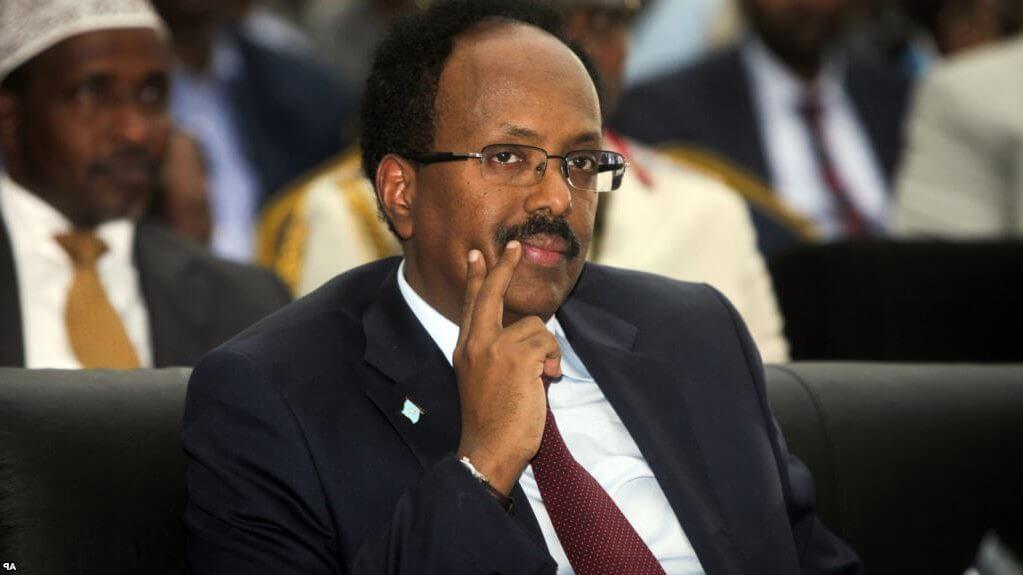The United States (US) and the European Union (EU) have issued statements condemning the Somali Parliament’s decision to extend the term of President Mohamed Abdullahi Farmaajo by two years. The reactions came after 149 MPs in the lower house of parliament on Monday voted to extend the mandate of the premier as well as his government until 2023. The move comes as Somalia is facing a political impasse, with parliamentary and presidential elections delayed due to infighting, and could shelve the polls by another two years.
Somali leaders have been facing mounting international pressure in recent months to end the political crisis in the country. In this respect, Secretary of State Antony Blinken said that the US is “deeply disappointed” with the Somalian government’s decision, and argued that resolving the ongoing political deadlock in the country was crucial for maintaining “the peace, stability, prosperity, and governance of Somalia.” He also stressed that the “implementation of this bill will pose serious obstacles to dialogue and further undermine peace and security.”
In a similar vein, the EU’s High Representative for Foreign Affairs, Josep Borrell, said that the vote to extend the mandate of the President and government “undermines the longstanding effort” of the international community to rebuild Somalia through consensus. Borrell added that the move will further divide the country and that it “does not serve the interests” of the Somali people.
Despite the lower house MPs voting in favour of the bill, the upper house of parliament objected to the vote, calling it unconstitutional. The bill needs the approval of the senate to become effective. The Speaker of the upper house (Senate), Abdi Hashi Abdullahi, cautioned that the move would “lead the country into political instability.” A separate senate statement also called on the international community to intervene before the situation “gets out of hand.”
Farmaajo, on the other hand, welcomed the move to extend his term and justified the decision by tweeting that it provided a “historic opportunity for the Somali people to exercise their constitutional right.” Villa Somalia, the official Twitter account of the Somalian presidency said that the move “followed after the failure of FMS members to support the implementation” of the agreement reached last year.
Waxaan soo dhaweynayaa Qaraarka @Golaha_shac_JFS ay awoodda dib ugu soo celiyeen Shacabka Soomaaliyeed. Maanta fursad taariikhi ah ayey u tahay shacabka Soomaaliyeed hanashada xuquuqdooda dastuuriga ah ee go'aan ka gaarista geeddi socodka siyaasadeed iyo dumuqradiyadeed ee dalka
— Mohamed Farmaajo (@M_Farmaajo) April 12, 2021
The FMS or the Federal Member States—which include Galmudug, Hirshabelle, Jubaland, Puntland, and South West—are the official federal divisions in Somalia. In September 2020, President Farmaajo and the five leaders of FMS agreed on a revised election model for the presidential elections, which would institute a ‘one person, one vote’ ballot. The government has proposed such a reform order to replace a convoluted, multi-step system in which the country’s clan leaders appoint special delegates to choose lawmakers for the lower house of parliament, and the country’s five federal states elect the members of the upper house of parliament. Both houses then elect a president, who then selects a prime minister, who then appoints a cabinet.
Although the central government has not been able to fully implement this new electoral framework just yet, its September agreement with FMS members made significant changes to the system. Under the proposal, the central government and regional administrations would appoint electoral commissions at the federal and regional levels. Next, electoral colleges of 101 delegates from each of the five states would elect the lower house MPs. These delegates would be appointed through rigorous consultations with the public, clan leaders, and regional officials. Meanwhile, local parliaments in these states would appoint the 54 senators for the upper house. However, the implementation of the deal has been stalled following complaints from state leaders of Jubaland and Puntland, who alleged that President Farmaajo had “packed the election boards with his allies”.
The political crisis in Somalia has been sidelining international efforts to defeat the al-Qaeda-linked terrorist group al-Shabab. In this respect, the United Nations (UN) along with the African Union (AU) and EU, said that they were not in favour of “new initiatives leading to any extension of prior mandates.”

